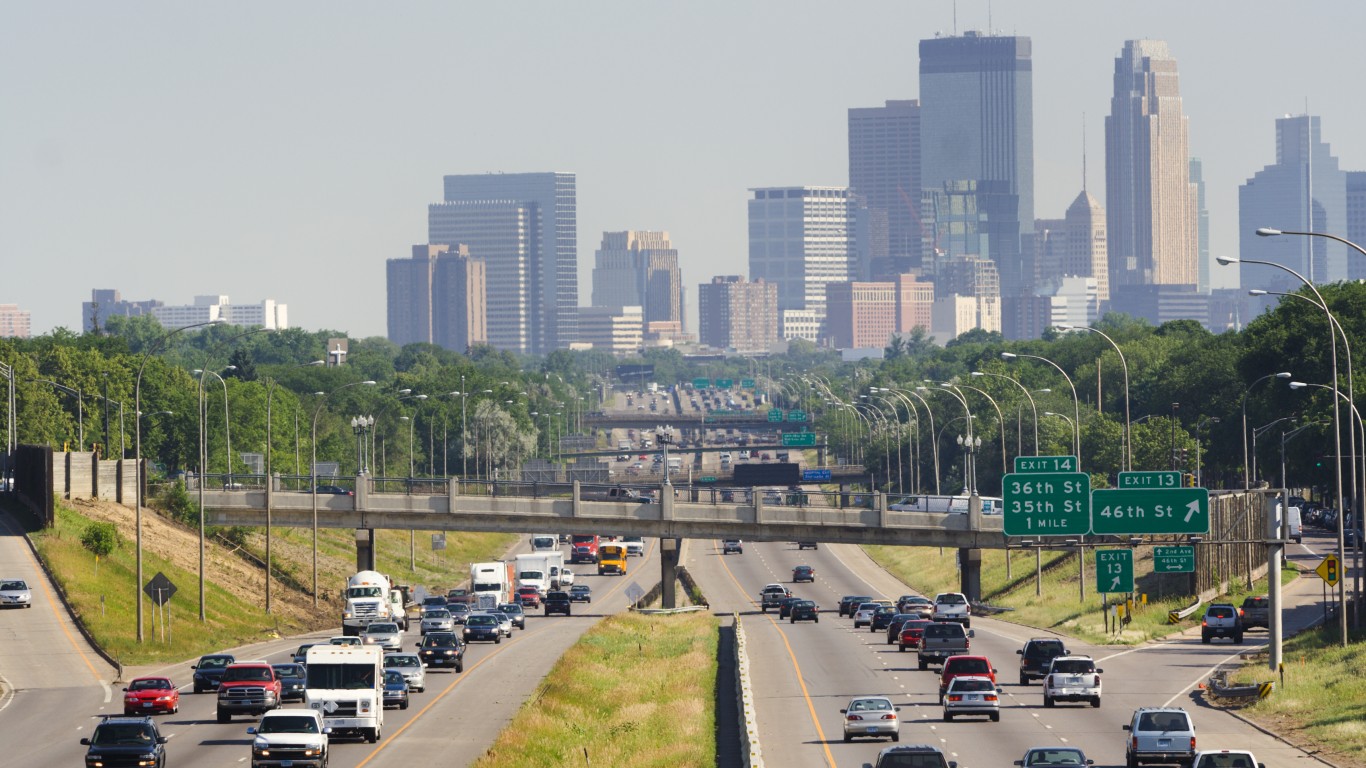
The U.S population barely grew from 2010 to 2020, based on historic standards. According to the Census Bureau, the population of the United States on April 1, 2020, was 331.4 million, an increase of 22.7 million, or 7.4%, from 2010. That was the slowest growth rate in decades. Some states actually lost population.
Since then, COVID-19 has likely had a negative effect on population growth, but what about growth over the next two decades? According to projections, Texas is the state that will grow the most by 2040. (This is the state where the population has grown the most since the pandemic.)
Past trends can help explain future ones. Internal migration accounted for the growth in some sections of the country and attrition in others. In just the past 30 years, New York went from being the second most populous state to being the fourth, after being surpassed by Texas in 1994 and Florida in 2014. These shifts reflect broader trends. (This is the American city the most people are leaving.)
The states with the fastest-growing populations between 2010 and 2020 tended to be located in the South and the West. Meanwhile, over the same period, the states with the slowest population growth were disproportionately located in the Northeast.
According to a study published by the Weldon Cooper Center for Public Service at the University of Virginia, these regional trends show no signs of slowing in the coming decades, and the population of 11 states, mostly in the West, will grow in excess of 20% by 2040. Meanwhile, nine, mostly Northeastern, states will be home to fewer people in 2040 than now.
To find the states that will grow the most by 2040, 24/7 Wall St. reviewed the Weldon Cooper Center for Public Service National Population Projections. States were ranked by the percentage change in population from 2020 to 2040. While some states are projected to see their population decline by 7% or more, the population of other states will expand by about a third.
These demographic shifts can have significant consequences for local economies and governments. Negative or slow population growth can lead to weaker economic growth and fewer economic opportunities, which in turn can push more people out of a given state. Population decline can also mean reduced revenue for state governments and limited funding for public works and services and reduced ability to meet budgetary obligations.
In Texas, the state that will grow the most, the population is projected to grow by 35%, or 10 million people, by 2040. Texas will then become the second most populous state with 40 million residents.
Click here to see the states that will grow the most in the next 20 years

50. West Virginia
> Projected pop. change, 2020-2040: -7.8% (-140,117 people)
> 2020 population: 1,801,966 (13th lowest)
> 2040 projected population: 1,661,849 (12th lowest)
[in-text-ad]
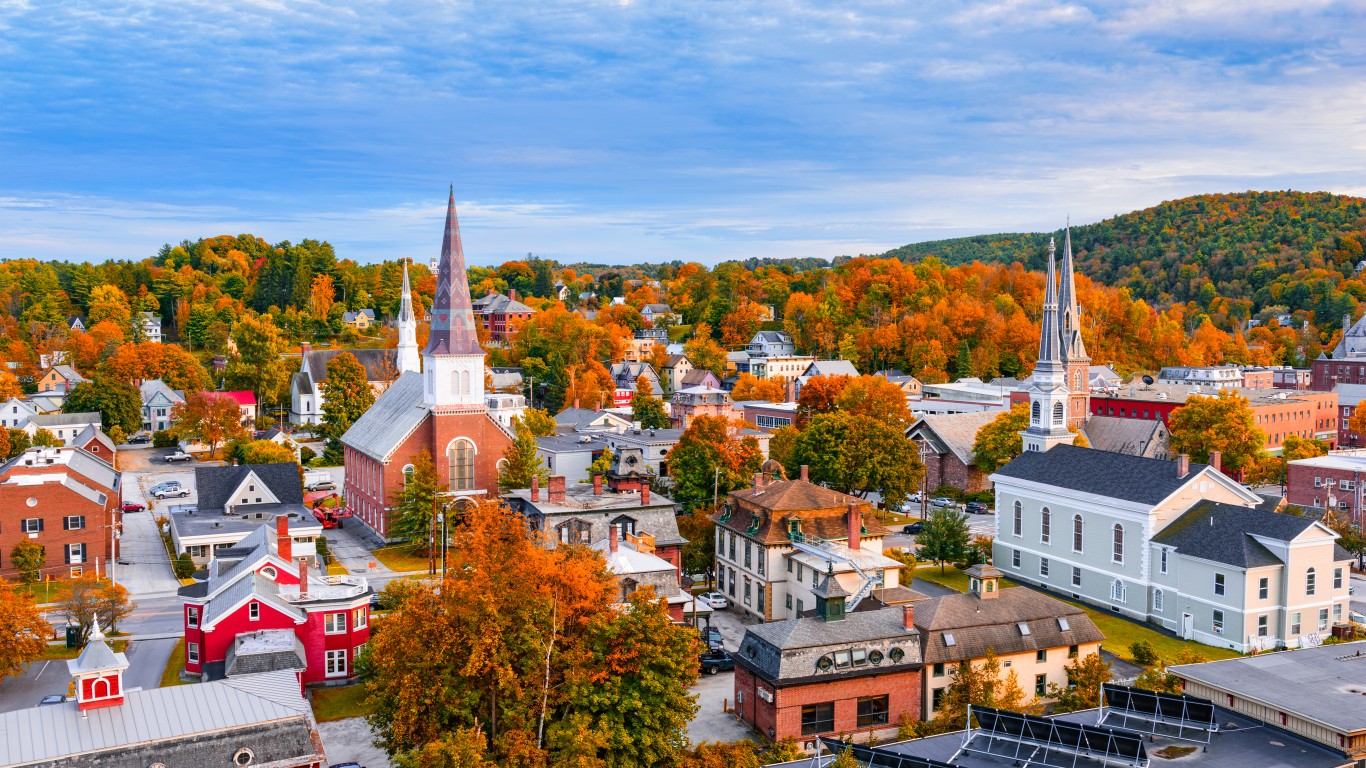
49. Vermont
> Projected pop. change, 2020-2040: -3.4% (-21,003 people)
> 2020 population: 622,868 (2nd lowest)
> 2040 projected population: 601,865 (the lowest)
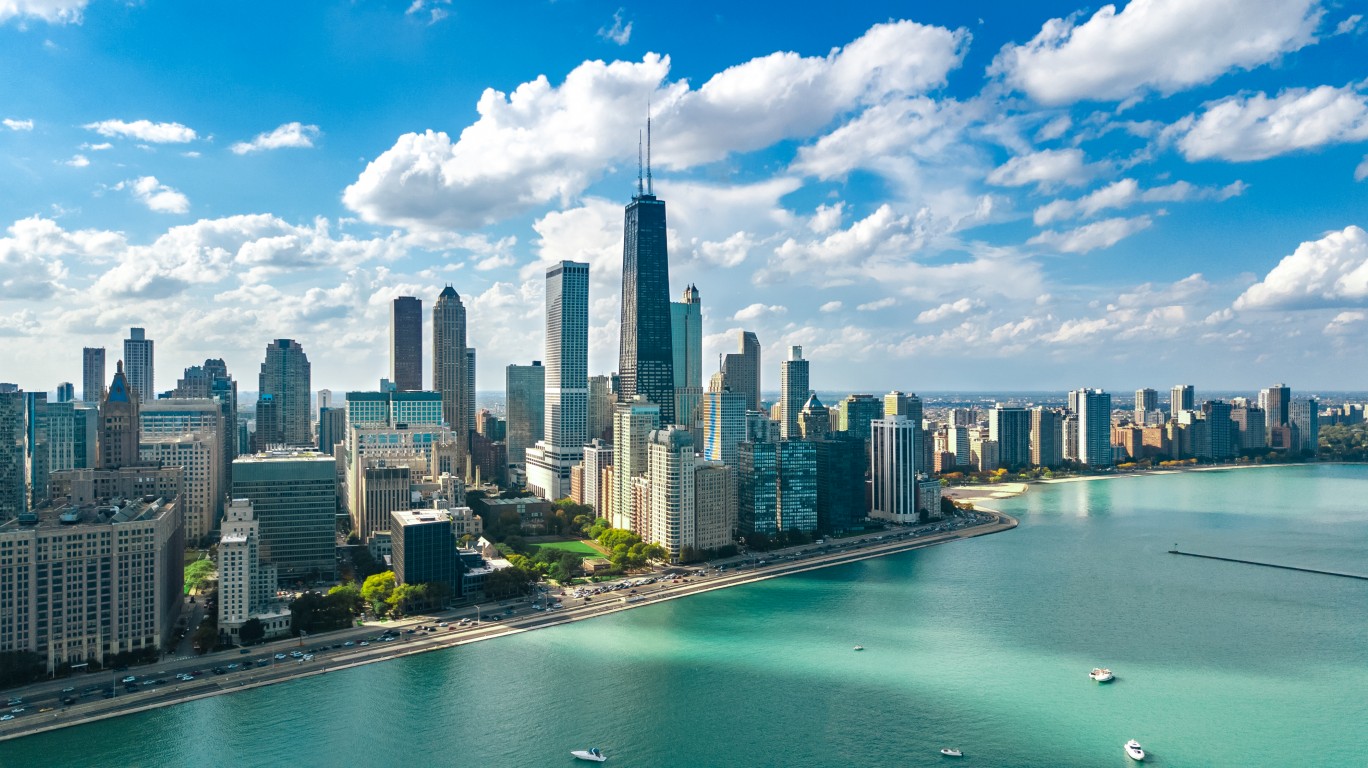
48. Illinois
> Projected pop. change, 2020-2040: -3.1% (-393,624 people)
> 2020 population: 12,791,188 (6th highest)
> 2040 projected population: 12,397,564 (8th highest)

47. Connecticut
> Projected pop. change, 2020-2040: -1.4% (-50,835 people)
> 2020 population: 3,593,542 (22nd lowest)
> 2040 projected population: 3,542,707 (20th lowest)
[in-text-ad-2]

46. Mississippi
> Projected pop. change, 2020-2040: -0.9% (-28,338 people)
> 2020 population: 2,990,498 (17th lowest)
> 2040 projected population: 2,962,160 (16th lowest)

45. Maine
> Projected pop. change, 2020-2040: -0.9% (-12,621 people)
> 2020 population: 1,338,780 (9th lowest)
> 2040 projected population: 1,326,159 (9th lowest)
[in-text-ad]

44. Rhode Island
> Projected pop. change, 2020-2040: -0.7% (-7,016 people)
> 2020 population: 1,062,334 (7th lowest)
> 2040 projected population: 1,055,318 (5th lowest)
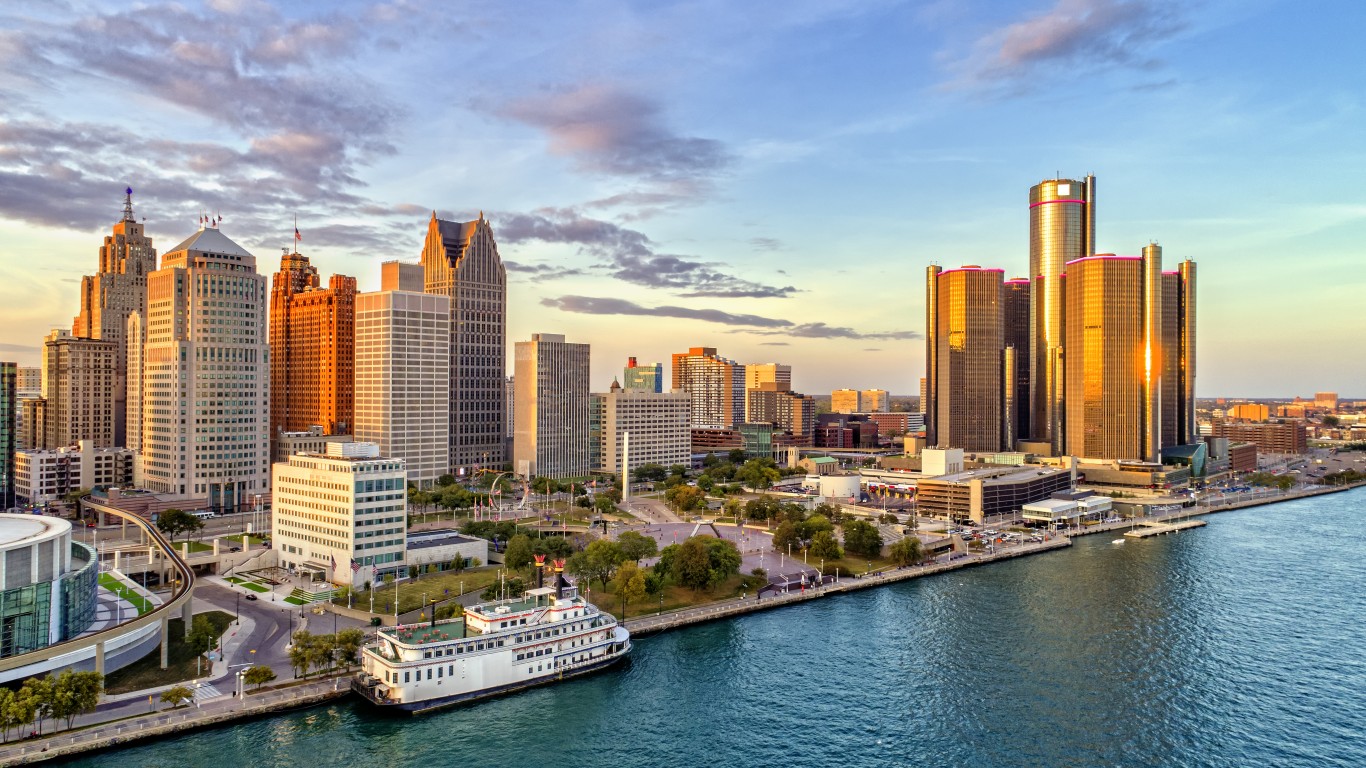
43. Michigan
> Projected pop. change, 2020-2040: -0.3% (-32,200 people)
> 2020 population: 9,992,315 (10th highest)
> 2040 projected population: 9,960,115 (10th highest)

42. Pennsylvania
> Projected pop. change, 2020-2040: -0.3% (-35,735 people)
> 2020 population: 12,844,885 (5th highest)
> 2040 projected population: 12,809,150 (6th highest)
[in-text-ad-2]

41. Ohio
> Projected pop. change, 2020-2040: +0.4% (+46,278 people)
> 2020 population: 11,705,262 (7th highest)
> 2040 projected population: 11,751,540 (9th highest)
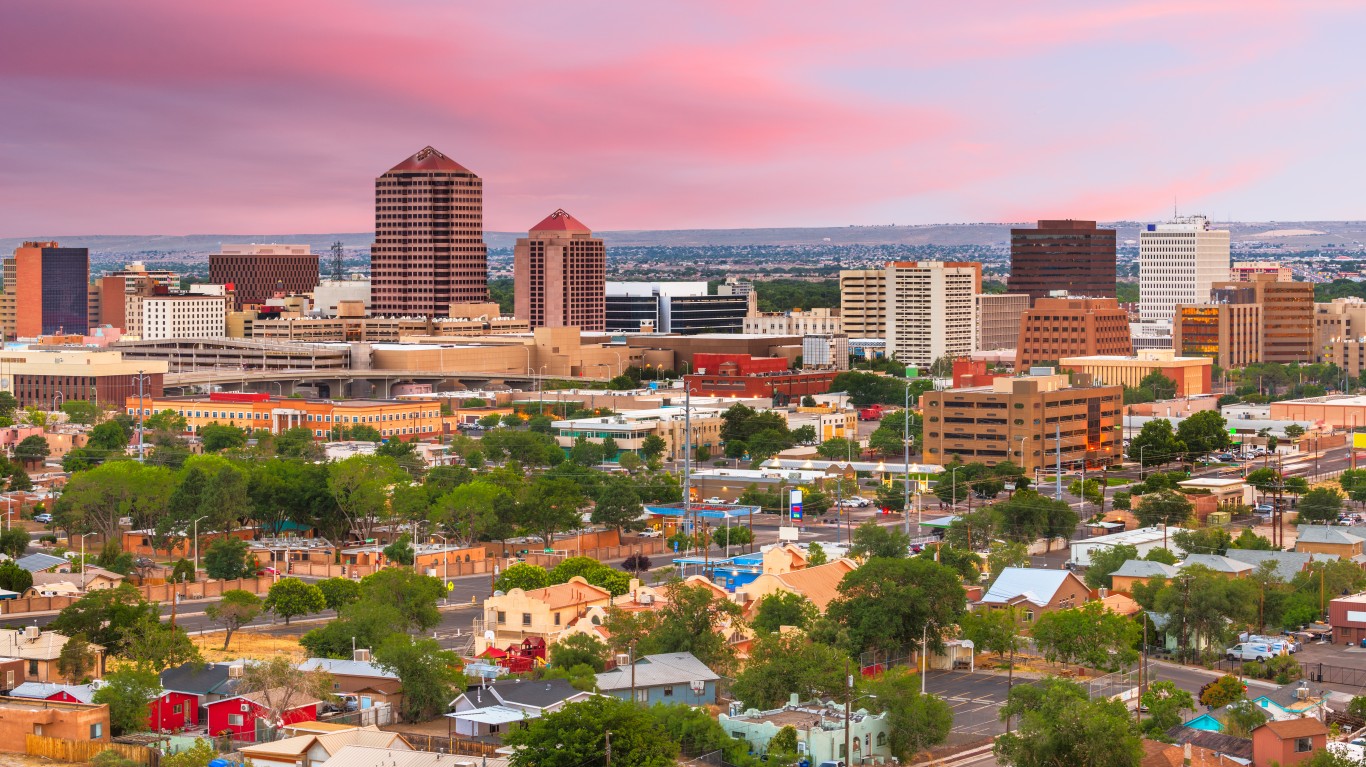
40. New Mexico
> Projected pop. change, 2020-2040: +1.3% (+28,184 people)
> 2020 population: 2,099,134 (15th lowest)
> 2040 projected population: 2,127,318 (13th lowest)
[in-text-ad]

39. Wisconsin
> Projected pop. change, 2020-2040: +2.7% (+159,961 people)
> 2020 population: 5,837,176 (21st highest)
> 2040 projected population: 5,997,137 (23rd highest)

38. Alabama
> Projected pop. change, 2020-2040: +3.0% (+145,518 people)
> 2020 population: 4,911,278 (24th highest)
> 2040 projected population: 5,056,796 (25th lowest)

37. New Hampshire
> Projected pop. change, 2020-2040: +3.0% (+40,534 people)
> 2020 population: 1,352,917 (10th lowest)
> 2040 projected population: 1,393,451 (10th lowest)
[in-text-ad-2]

36. Missouri
> Projected pop. change, 2020-2040: +3.2% (+198,499 people)
> 2020 population: 6,161,471 (18th highest)
> 2040 projected population: 6,359,970 (21st highest)

35. Kansas
> Projected pop. change, 2020-2040: +3.3% (+96,441 people)
> 2020 population: 2,936,212 (16th lowest)
> 2040 projected population: 3,032,653 (17th lowest)
[in-text-ad]

34. New Jersey
> Projected pop. change, 2020-2040: +4.2% (+381,938 people)
> 2020 population: 9,088,074 (11th highest)
> 2040 projected population: 9,470,012 (13th highest)

33. New York
> Projected pop. change, 2020-2040: +4.2% (+842,338 people)
> 2020 population: 20,031,150 (4th highest)
> 2040 projected population: 20,873,488 (4th highest)
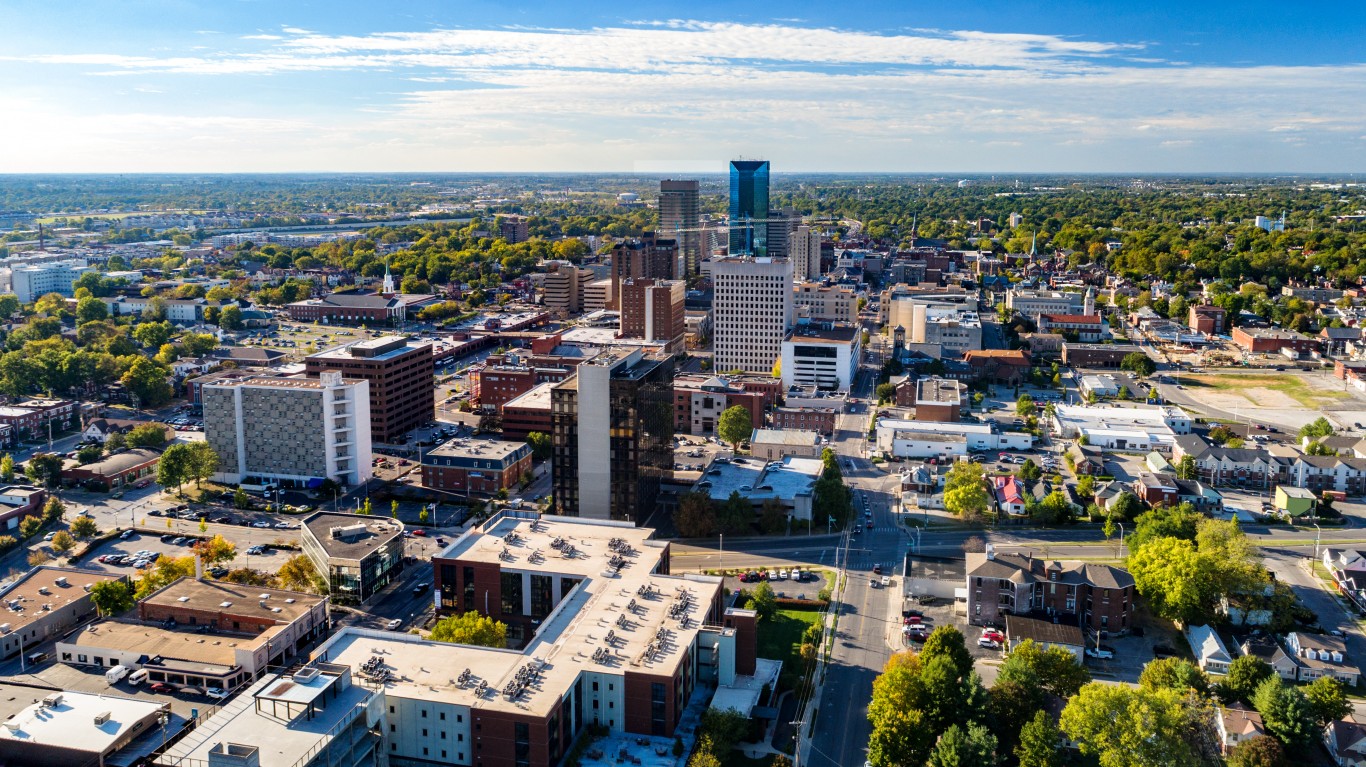
32. Kentucky
> Projected pop. change, 2020-2040: +4.8% (+216,228 people)
> 2020 population: 4,498,533 (25th lowest)
> 2040 projected population: 4,714,761 (24th lowest)
[in-text-ad-2]
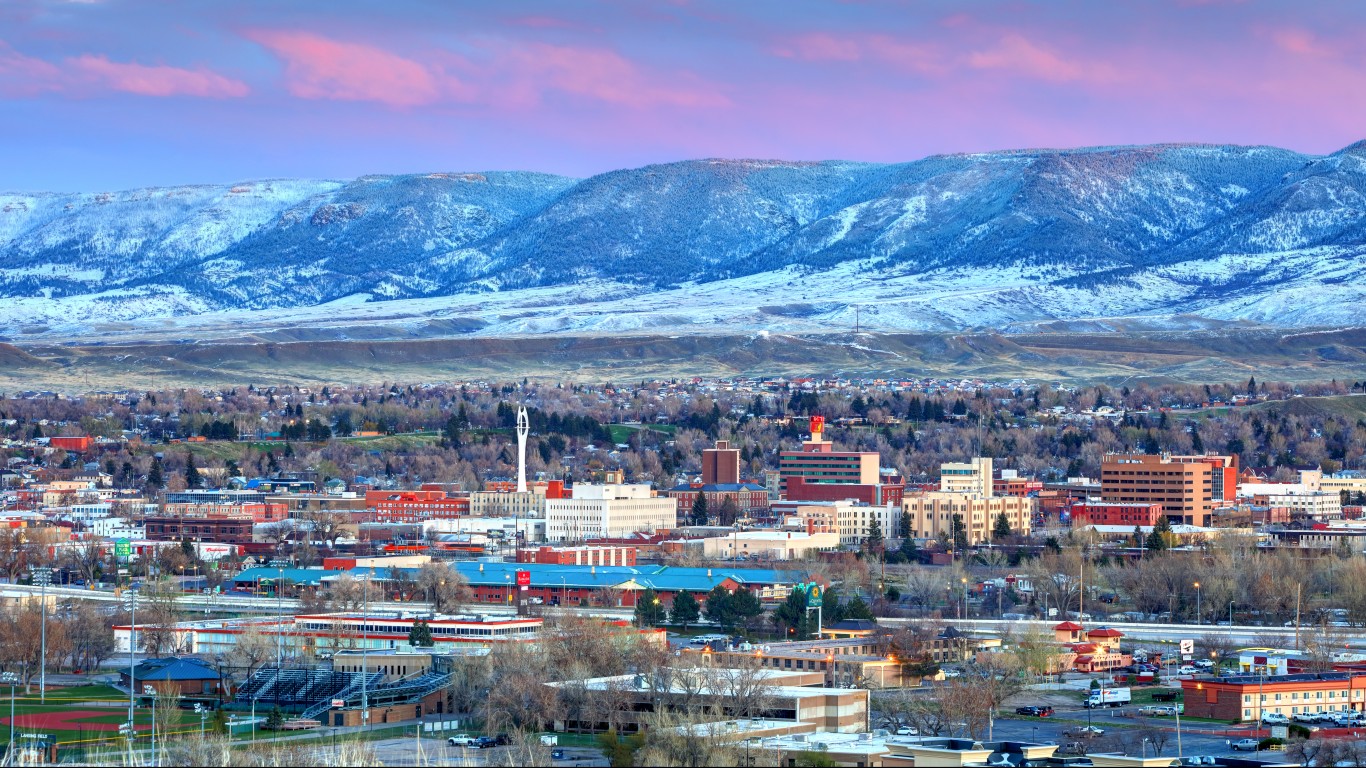
31. Wyoming
> Projected pop. change, 2020-2040: +5.2% (+30,407 people)
> 2020 population: 585,380 (the lowest)
> 2040 projected population: 615,787 (2nd lowest)

30. Indiana
> Projected pop. change, 2020-2040: +5.3% (+357,419 people)
> 2020 population: 6,737,581 (17th highest)
> 2040 projected population: 7,095,000 (18th highest)
[in-text-ad]

29. Arkansas
> Projected pop. change, 2020-2040: +5.9% (+179,044 people)
> 2020 population: 3,038,491 (18th lowest)
> 2040 projected population: 3,217,535 (18th lowest)

28. Iowa
> Projected pop. change, 2020-2040: +6.5% (+208,543 people)
> 2020 population: 3,184,240 (20th lowest)
> 2040 projected population: 3,392,783 (19th lowest)
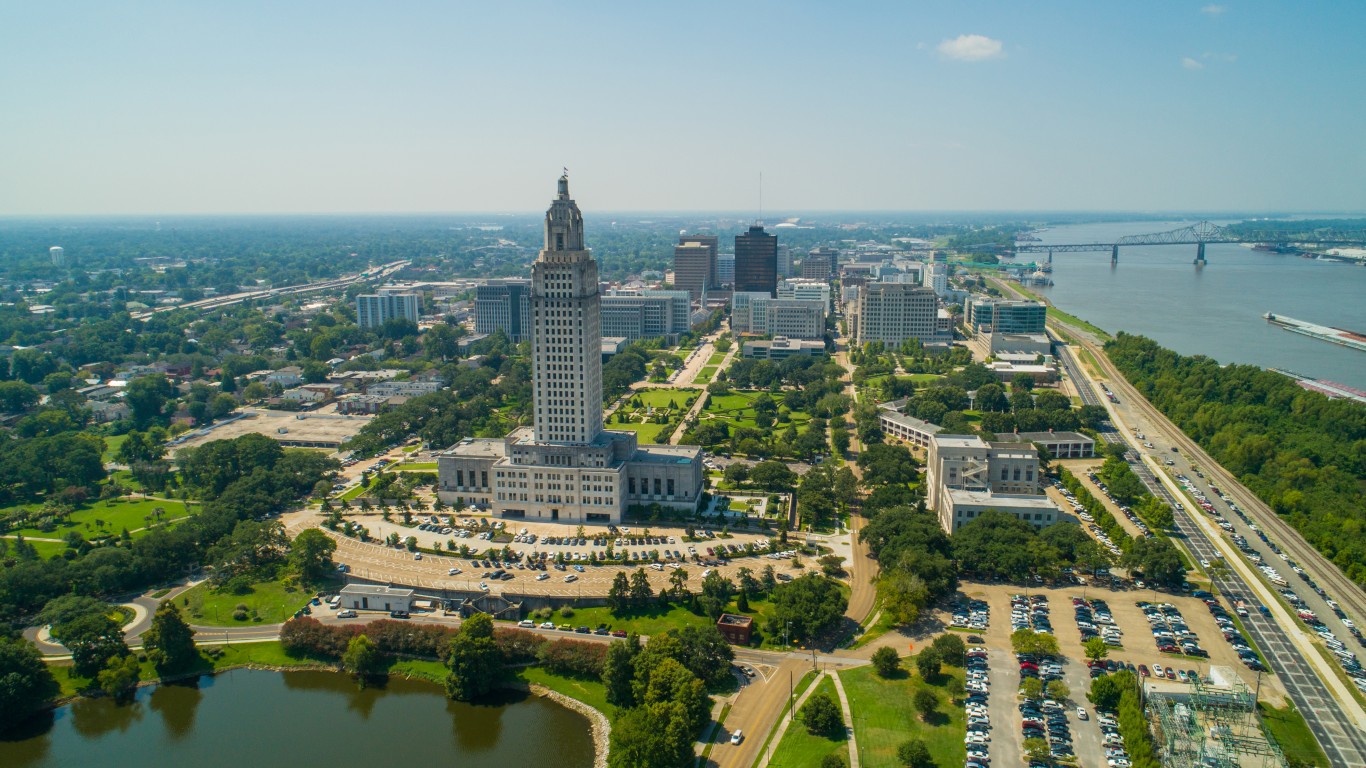
27. Louisiana
> Projected pop. change, 2020-2040: +6.7% (+319,880 people)
> 2020 population: 4,742,900 (25th highest)
> 2040 projected population: 5,062,780 (25th highest)
[in-text-ad-2]
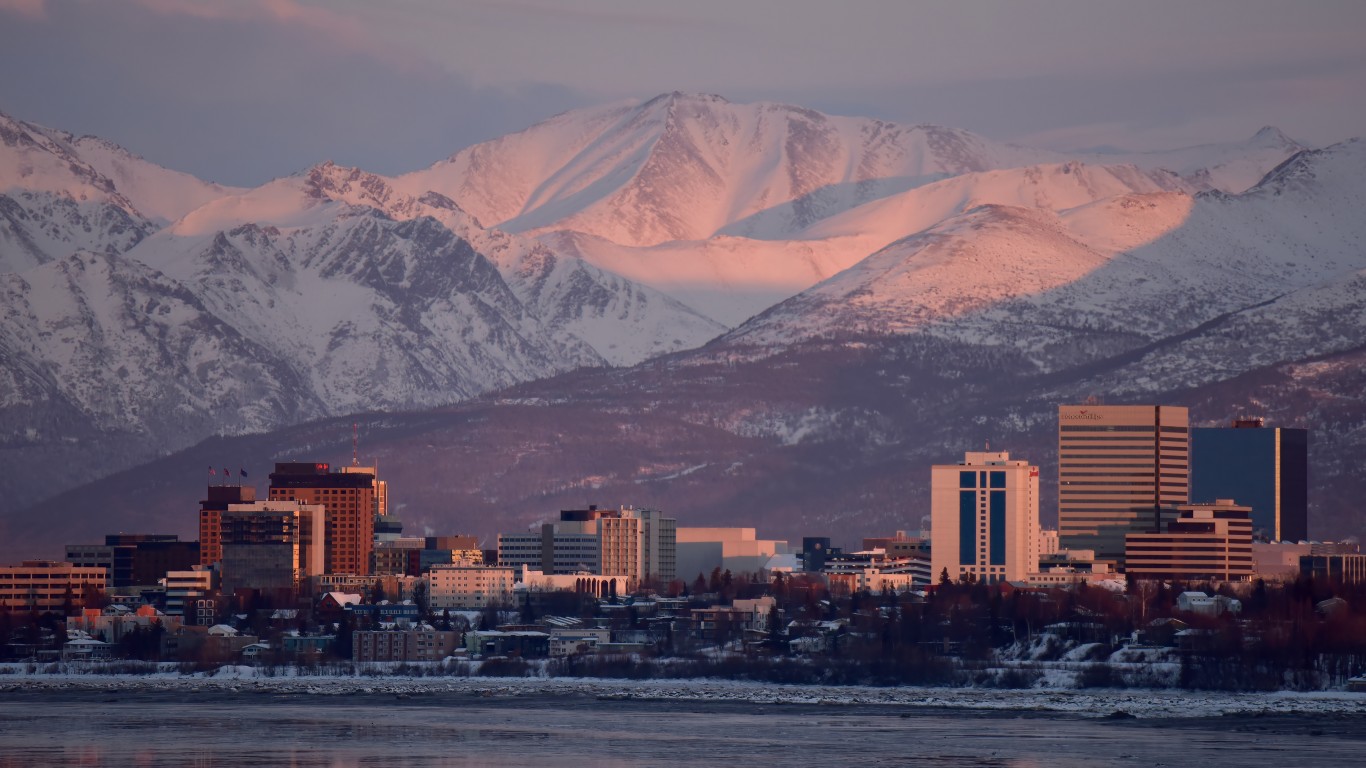
26. Alaska
> Projected pop. change, 2020-2040: +9.1% (+68,626 people)
> 2020 population: 751,328 (3rd lowest)
> 2040 projected population: 819,954 (3rd lowest)

25. Massachusetts
> Projected pop. change, 2020-2040: +10.9% (+760,536 people)
> 2020 population: 6,982,092 (15th highest)
> 2040 projected population: 7,742,628 (16th highest)
[in-text-ad]

24. Oklahoma
> Projected pop. change, 2020-2040: +10.9% (+437,858 people)
> 2020 population: 4,001,180 (23rd lowest)
> 2040 projected population: 4,439,038 (23rd lowest)
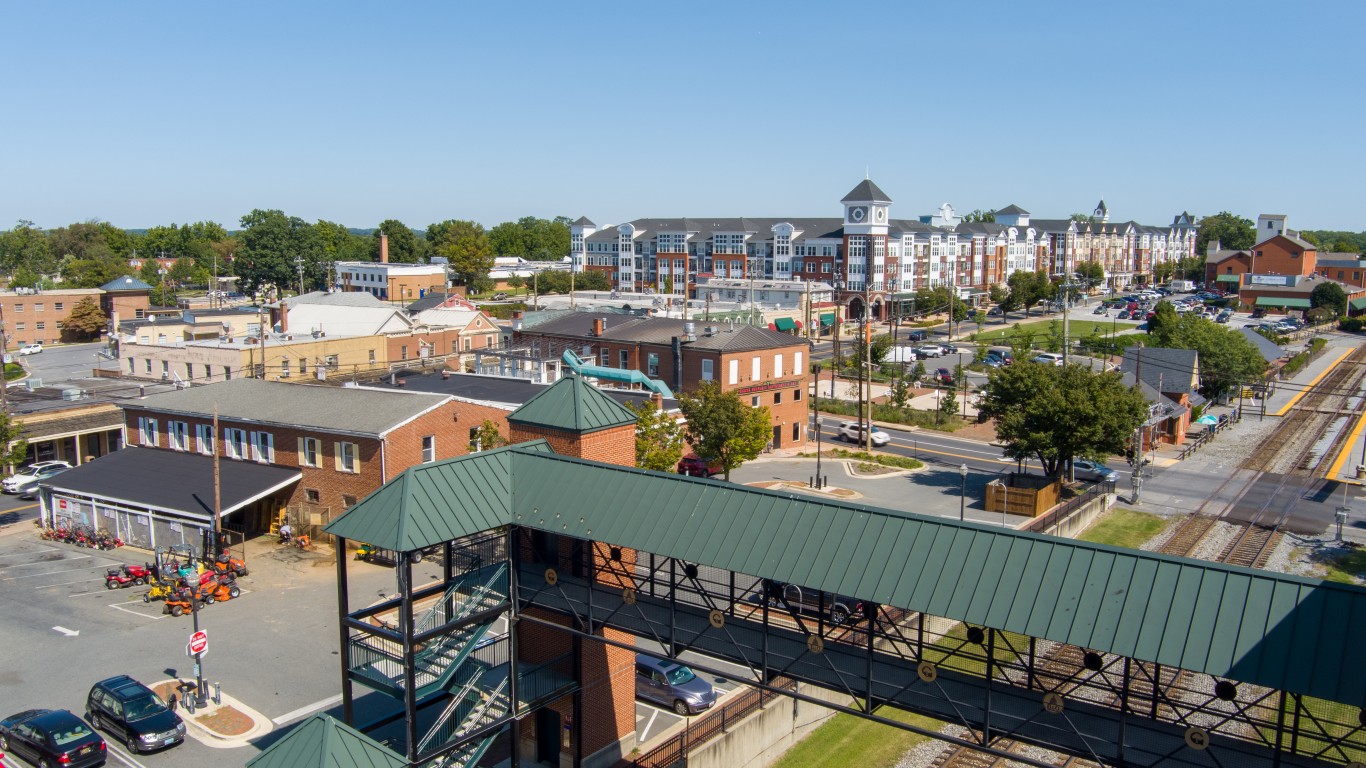
23. Maryland
> Projected pop. change, 2020-2040: +11.1% (+681,557 people)
> 2020 population: 6,161,345 (19th highest)
> 2040 projected population: 6,842,902 (19th highest)

22. Hawaii
> Projected pop. change, 2020-2040: +11.4% (+165,801 people)
> 2020 population: 1,453,902 (11th lowest)
> 2040 projected population: 1,619,703 (11th lowest)
[in-text-ad-2]
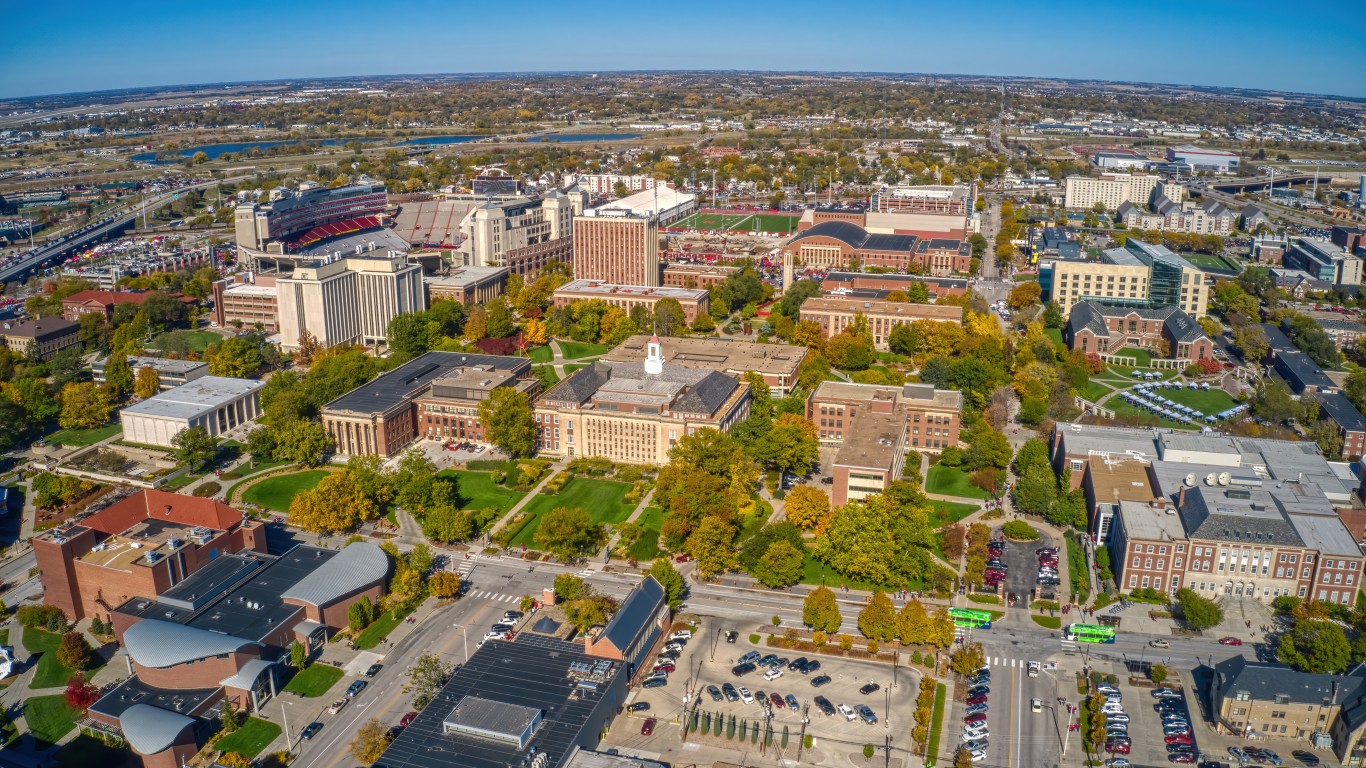
21. Nebraska
> Projected pop. change, 2020-2040: +12.0% (+234,042 people)
> 2020 population: 1,956,876 (14th lowest)
> 2040 projected population: 2,190,918 (14th lowest)

20. Minnesota
> Projected pop. change, 2020-2040: +12.0% (+681,220 people)
> 2020 population: 5,683,666 (22nd highest)
> 2040 projected population: 6,364,886 (20th highest)
[in-text-ad]
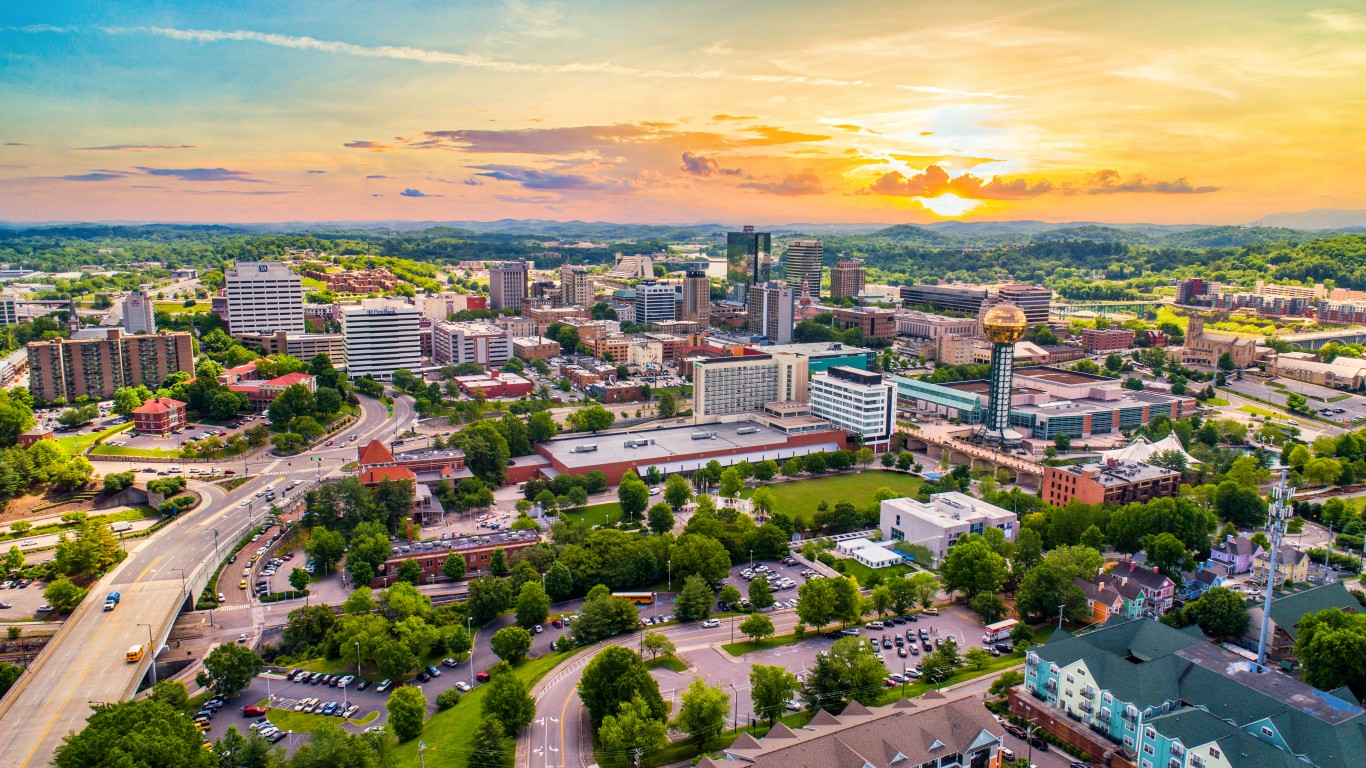
19. Tennessee
> Projected pop. change, 2020-2040: +14.0% (+961,806 people)
> 2020 population: 6,861,856 (16th highest)
> 2040 projected population: 7,823,662 (15th highest)

18. Virginia
> Projected pop. change, 2020-2040: +14.1% (+1,221,707 people)
> 2020 population: 8,655,021 (12th highest)
> 2040 projected population: 9,876,728 (11th highest)

17. California
> Projected pop. change, 2020-2040: +14.9% (+6,028,361 people)
> 2020 population: 40,438,640 (the highest)
> 2040 projected population: 46,467,001 (the highest)
[in-text-ad-2]
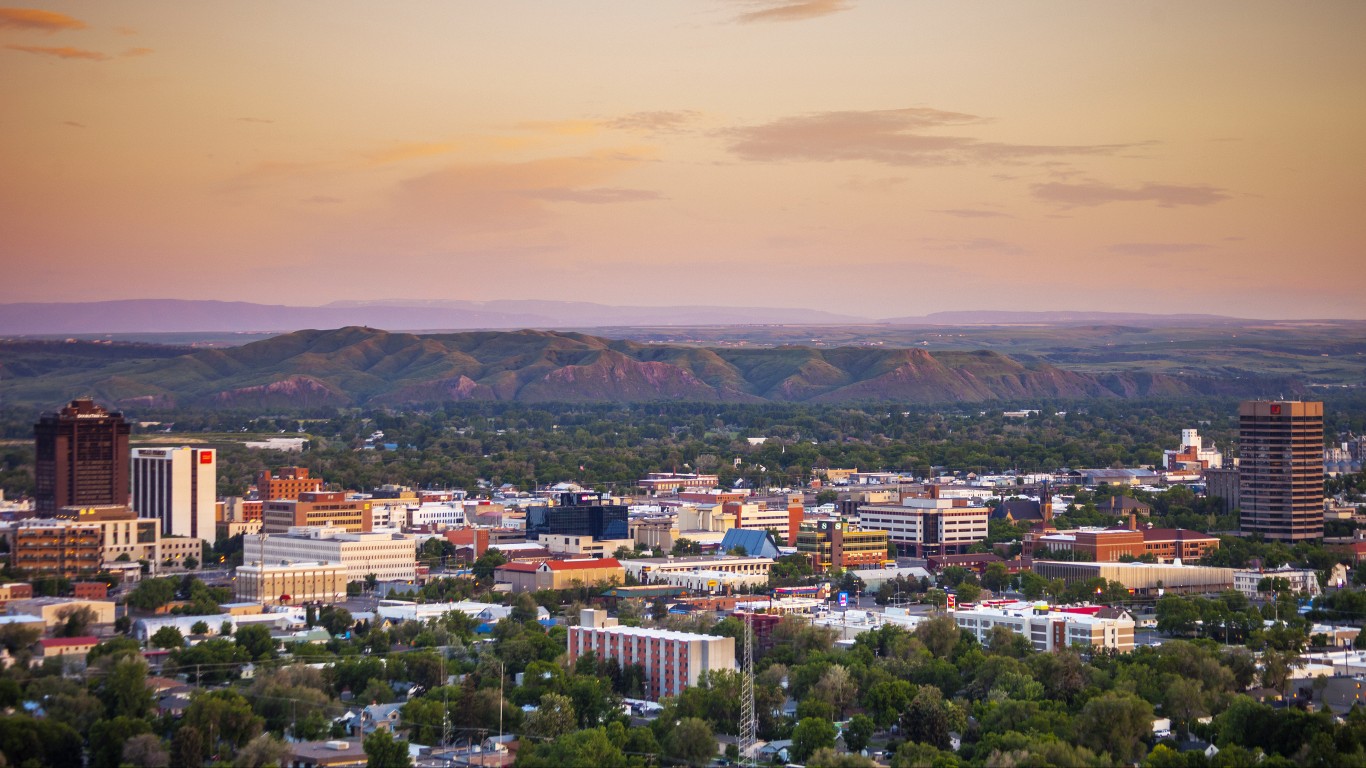
16. Montana
> Projected pop. change, 2020-2040: +15.0% (+161,669 people)
> 2020 population: 1,074,635 (8th lowest)
> 2040 projected population: 1,236,304 (8th lowest)
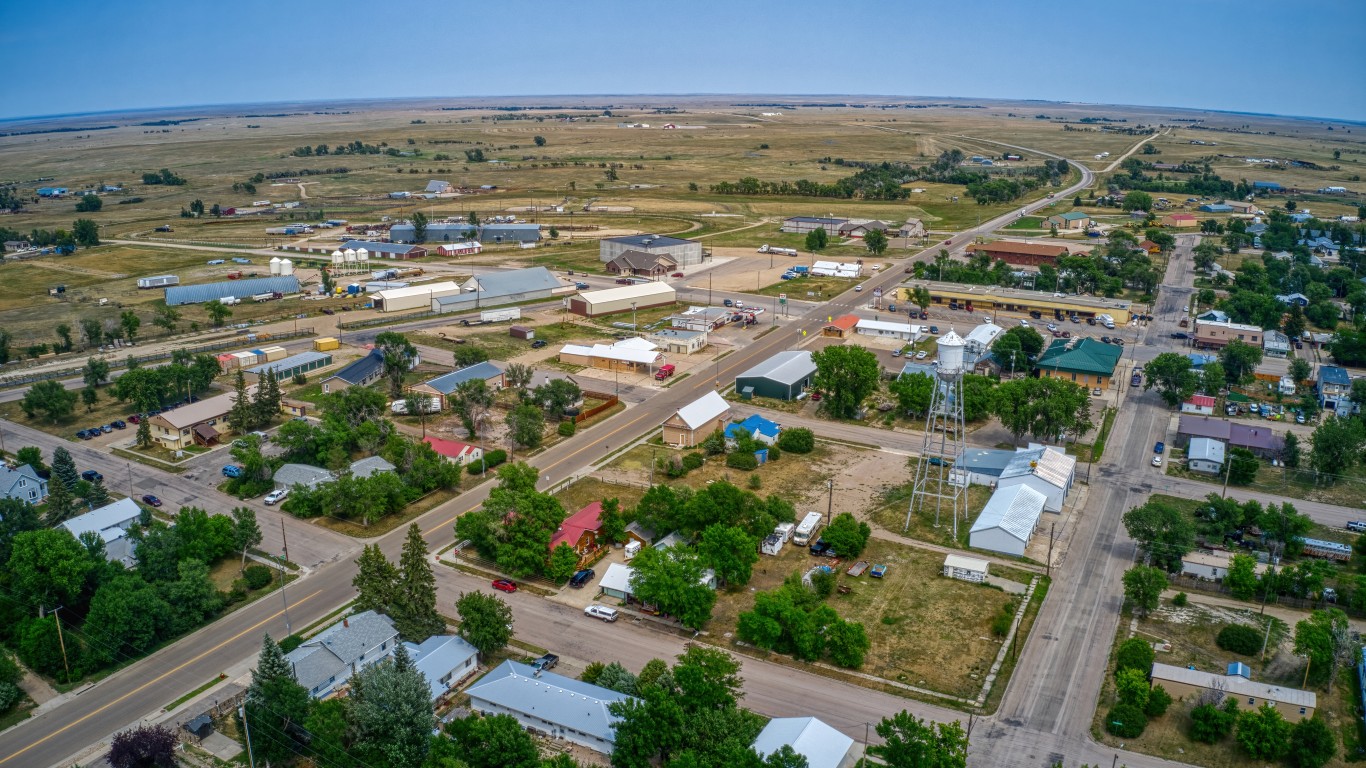
15. South Dakota
> Projected pop. change, 2020-2040: +17.0% (+151,344 people)
> 2020 population: 891,688 (5th lowest)
> 2040 projected population: 1,043,032 (4th lowest)
[in-text-ad]

14. Delaware
> Projected pop. change, 2020-2040: +17.9% (+176,951 people)
> 2020 population: 987,393 (6th lowest)
> 2040 projected population: 1,164,344 (7th lowest)

13. Georgia
> Projected pop. change, 2020-2040: +19.5% (+2,094,920 people)
> 2020 population: 10,725,351 (8th highest)
> 2040 projected population: 12,820,271 (5th highest)

12. North Carolina
> Projected pop. change, 2020-2040: +19.8% (+2,090,894 people)
> 2020 population: 10,568,033 (9th highest)
> 2040 projected population: 12,658,927 (7th highest)
[in-text-ad-2]
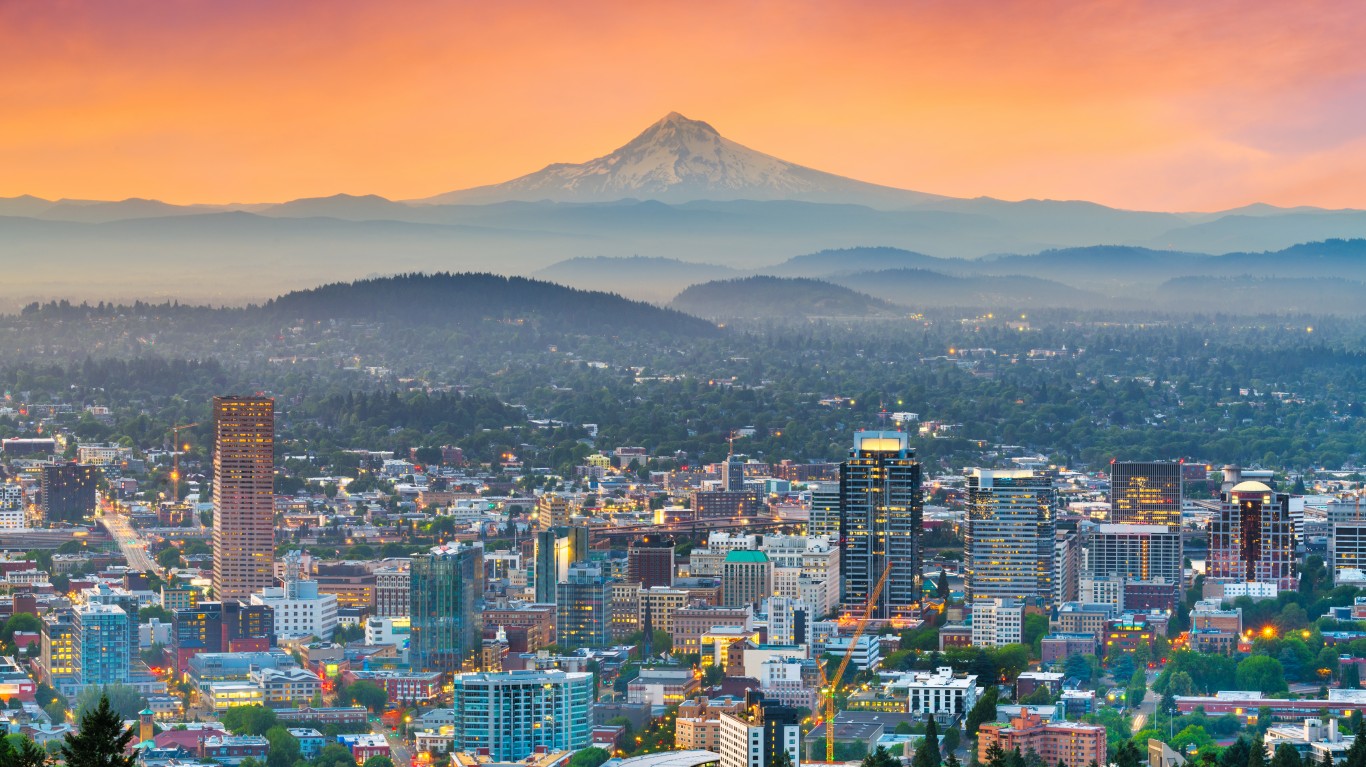
11. Oregon
> Projected pop. change, 2020-2040: +21.0% (+896,507 people)
> 2020 population: 4,267,534 (24th lowest)
> 2040 projected population: 5,164,041 (24th highest)

10. South Carolina
> Projected pop. change, 2020-2040: +22.5% (+1,167,938 people)
> 2020 population: 5,184,564 (23rd highest)
> 2040 projected population: 6,352,502 (22nd highest)
[in-text-ad]
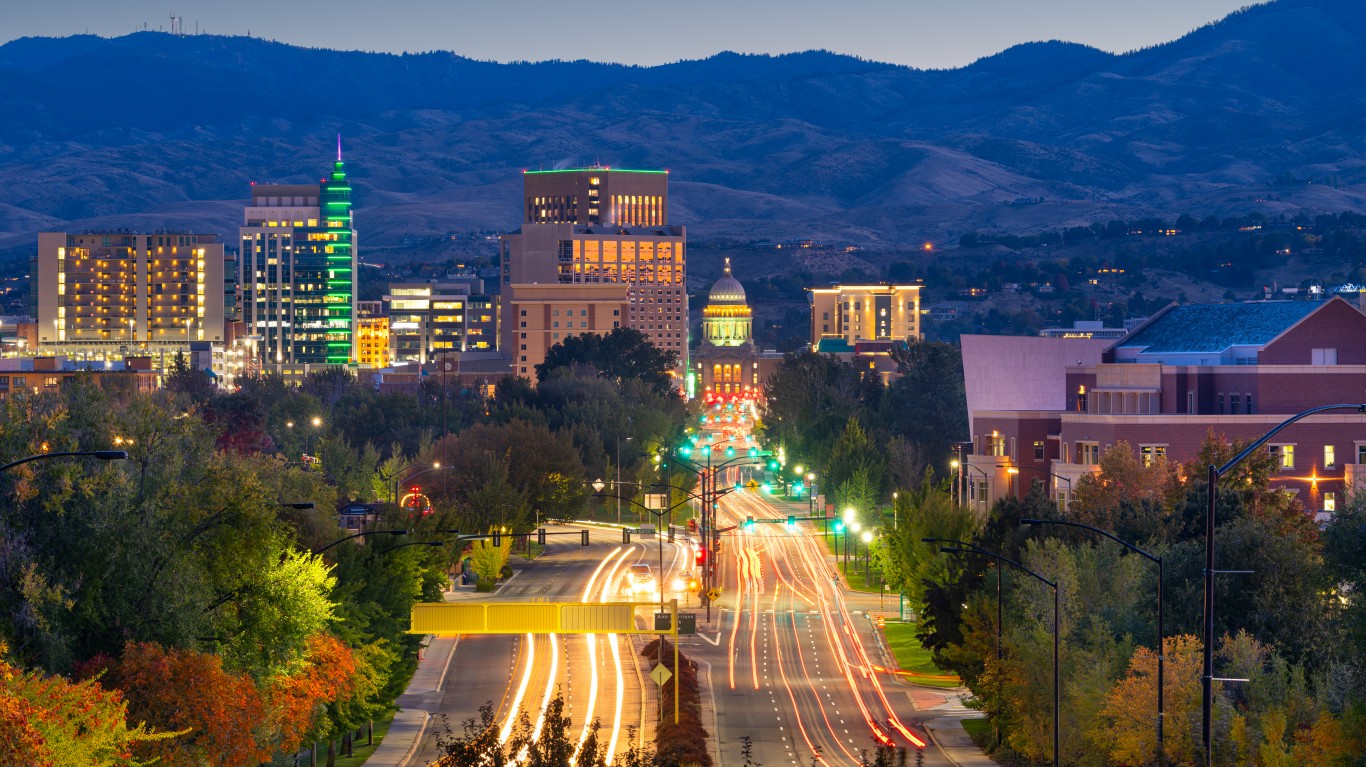
9. Idaho
> Projected pop. change, 2020-2040: +25.4% (+450,593 people)
> 2020 population: 1,777,249 (12th lowest)
> 2040 projected population: 2,227,842 (15th lowest)
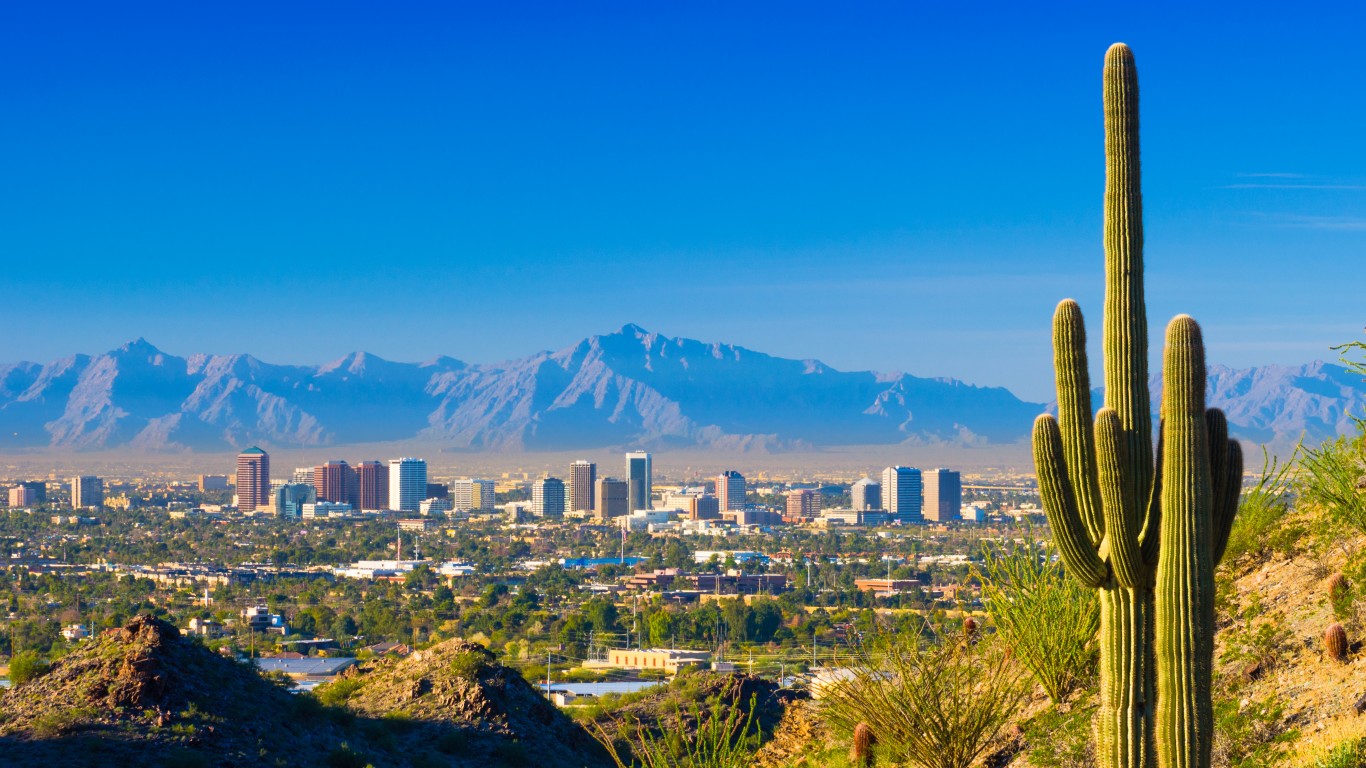
8. Arizona
> Projected pop. change, 2020-2040: +26.1% (+1,897,585 people)
> 2020 population: 7,268,694 (14th highest)
> 2040 projected population: 9,166,279 (14th highest)

7. Washington
> Projected pop. change, 2020-2040: +27.3% (+2,094,308 people)
> 2020 population: 7,681,818 (13th highest)
> 2040 projected population: 9,776,126 (12th highest)
[in-text-ad-2]

6. Nevada
> Projected pop. change, 2020-2040: +30.1% (+939,106 people)
> 2020 population: 3,119,265 (19th lowest)
> 2040 projected population: 4,058,371 (21st lowest)
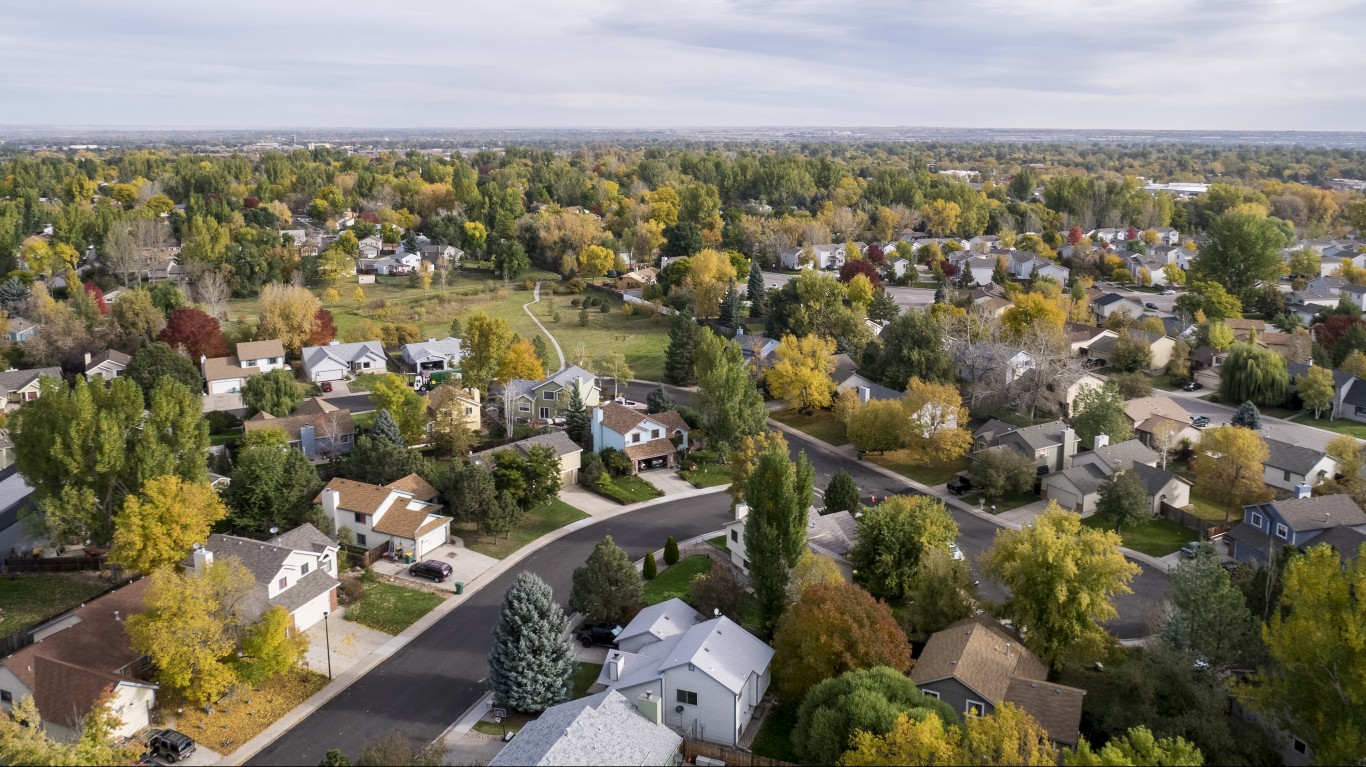
5. Colorado
> Projected pop. change, 2020-2040: +31.7% (+1,849,548 people)
> 2020 population: 5,843,359 (20th highest)
> 2040 projected population: 7,692,907 (17th highest)
[in-text-ad]
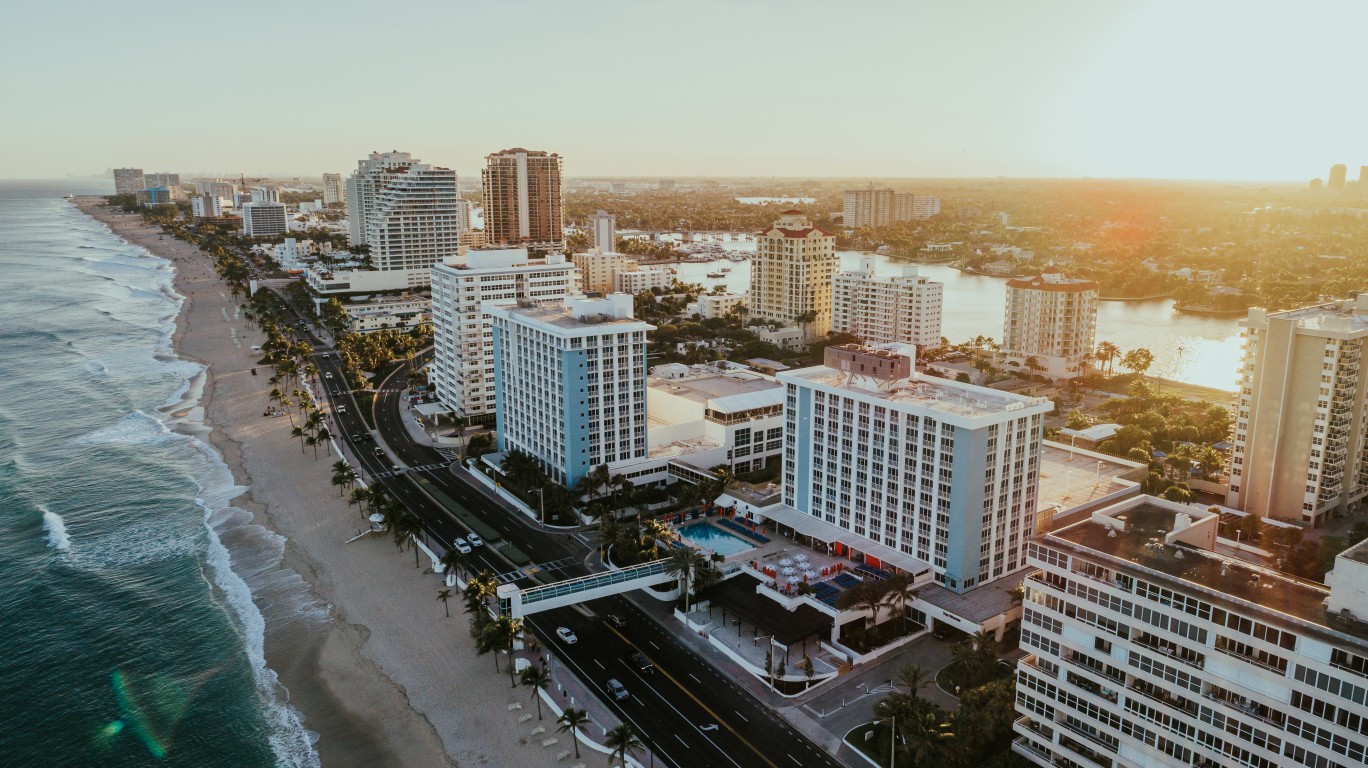
4. Florida
> Projected pop. change, 2020-2040: +32.0% (+7,009,726 people)
> 2020 population: 21,877,257 (3rd highest)
> 2040 projected population: 28,886,983 (3rd highest)
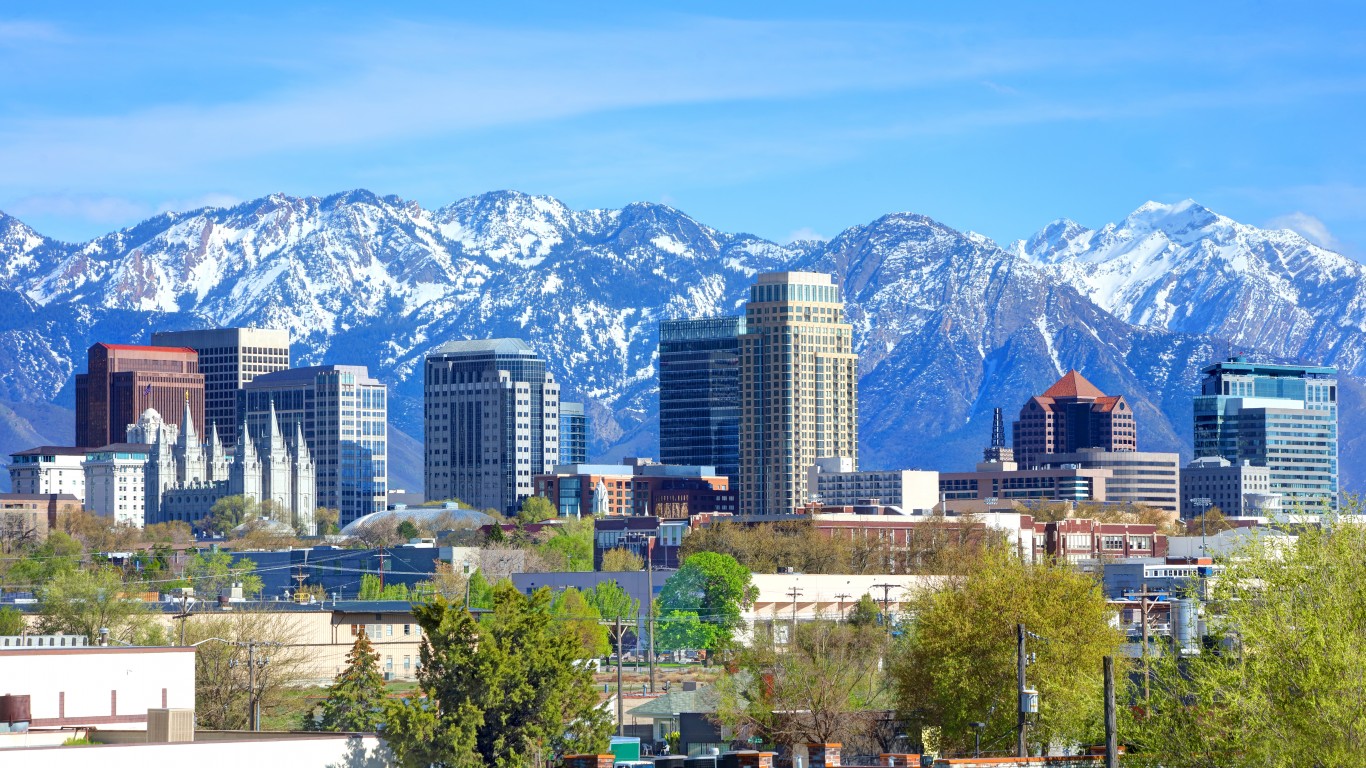
3. Utah
> Projected pop. change, 2020-2040: +34.1% (+1,103,770 people)
> 2020 population: 3,240,569 (21st lowest)
> 2040 projected population: 4,344,339 (22nd lowest)
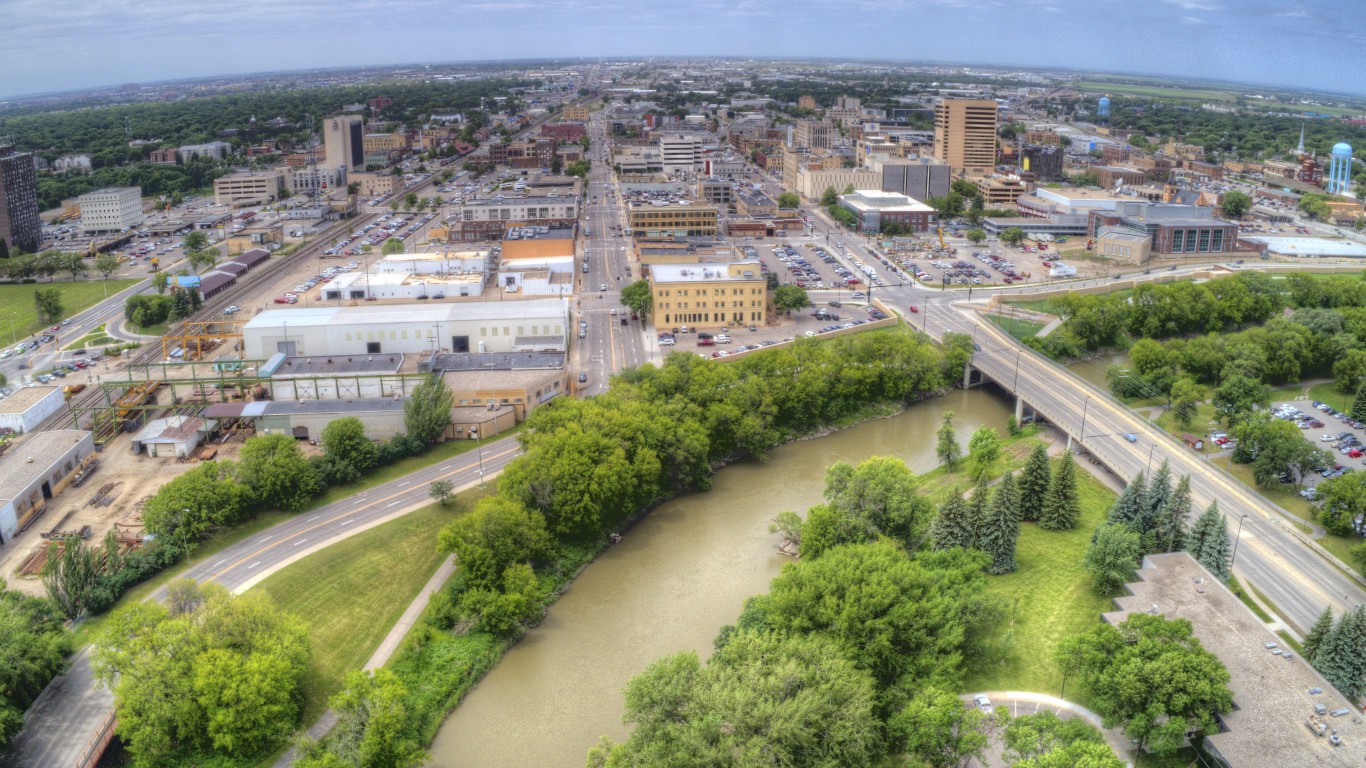
2. North Dakota
> Projected pop. change, 2020-2040: +34.3% (+271,054 people)
> 2020 population: 789,403 (4th lowest)
> 2040 projected population: 1,060,457 (6th lowest)
[in-text-ad-2]

1. Texas
> Projected pop. change, 2020-2040: +35.2% (+10,411,814 people)
> 2020 population: 29,604,099 (2nd highest)
> 2040 projected population: 40,015,913 (2nd highest)
In 20 Years, I Haven’t Seen A Cash Back Card This Good
Credit card companies are at war, handing out free rewards and benefits to win the best customers. A good cash back card can be worth thousands of dollars a year in free money, not to mention other perks like travel, insurance, and access to fancy lounges. Our top pick today has pays up to 5% cash back, a $200 bonus on top, and $0 annual fee. Click here to apply before they stop offering rewards this generous.
Flywheel Publishing has partnered with CardRatings for our coverage of credit card products. Flywheel Publishing and CardRatings may receive a commission from card issuers.
Thank you for reading! Have some feedback for us?
Contact the 24/7 Wall St. editorial team.
 24/7 Wall St.
24/7 Wall St.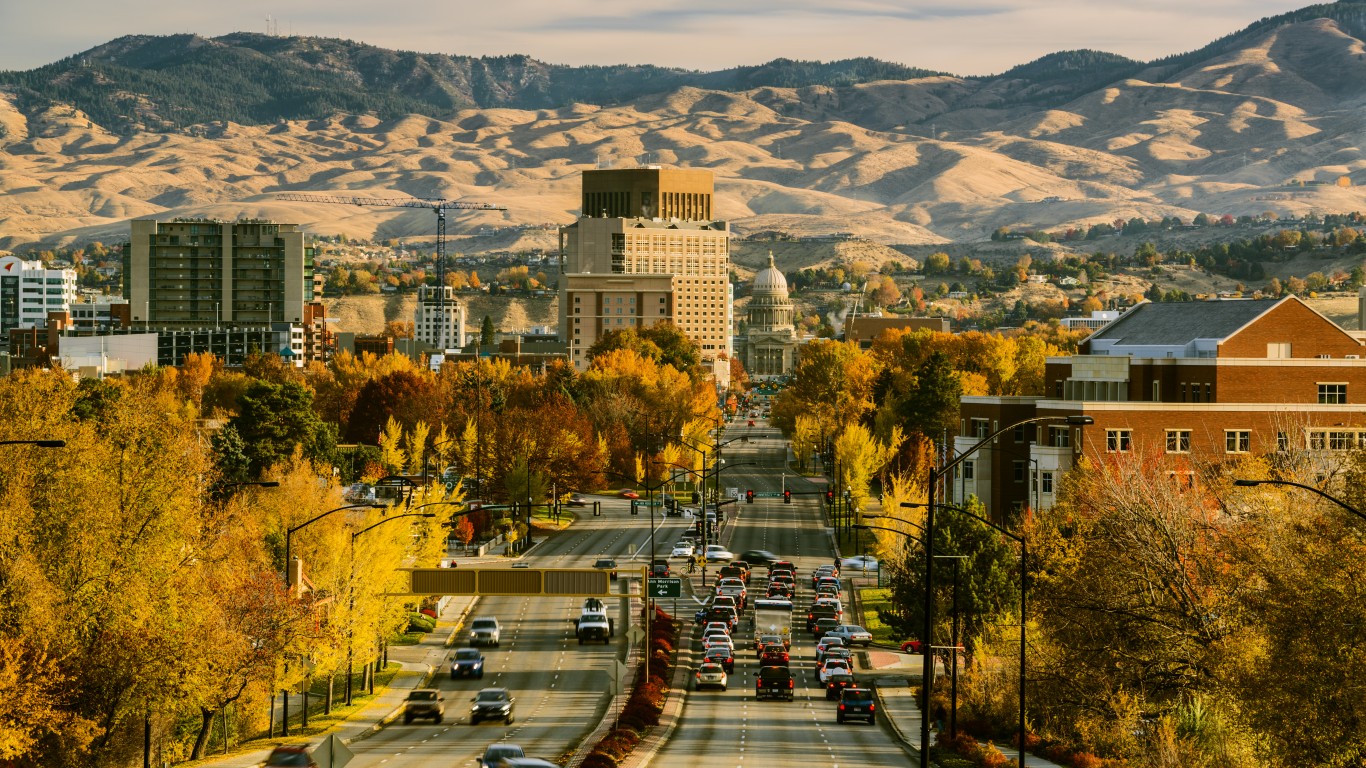 24/7 Wall St.
24/7 Wall St. 24/7 Wall St.
24/7 Wall St. 24/7 Wall St.
24/7 Wall St.

